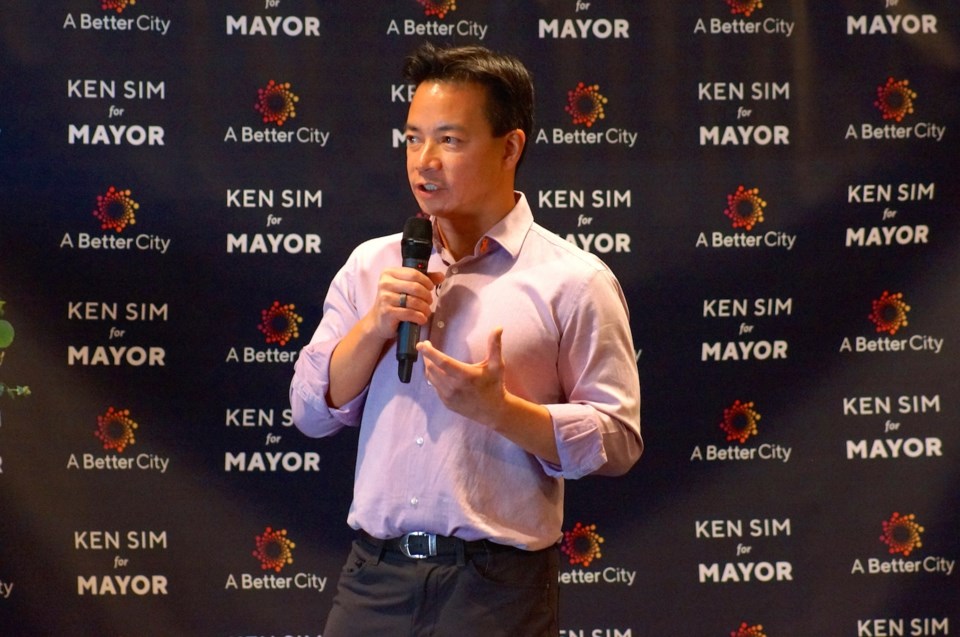Even when voters in British Columbia participated in municipal elections during the month of November, Labour Day was usually mentioned as the semi-official start of campaigns. With a vote scheduled for mid-October, candidates in the City of Â鶹´«Ã½Ó³»are already knocking on doors and seeking to establish an emotional connection with voters.
Research Co. and Glacier Media asked likely voters in Â鶹´«Ã½Ó³»about the campaign, the matters that worry them and where their allegiance lies at this particular moment. The most important issue is housing (35 per cent), followed by drug overdoses with 14 per cent, and crime, poverty and property taxes, each at nine per cent.
Two thirds of likely voters (67 per cent) claim to be following the electoral campaign “very closely” (16 per cent) or “moderately closely” (51 per cent). Those who live in the west side of the city are paying more attention to the early stages of the race (72 per cent) than their counterparts who reside downtown (67 per cent) or on the east side (63 per cent).
On the issue of information, we do not see significant generational differences. Just over half of likely voters (52 per cent) have seen, read or heard media stories where mayoral or council candidates discussed their position on issues.
When we take a look at online engagement, the battle for young supporters is fierce. While only 29 per cent of all likely voters have visited the website of a mayoral or council candidate, the proportion rises to 37 per cent among those aged 18 to 34. In addition, a quarter of the city’s youngest likely voters (25 per cent) have interacted with a candidate on social media, such as following them on Twitter or liking them on Facebook, nine percentage points higher than the city-wide average (16 per cent).
At this point, the top two vote-getters in the 2018 mayoral election are locked in a tight race. Incumbent Mayor Kennedy Stewart of Forward Together is in first place with the support of 35 per cent of decided voters, followed by Ken Sim of A Better City (ABC) with 30 per cent, Colleen Hardwick of TEAM for a Livable Â鶹´«Ã½Ó³»with 17 per cent, and Mark Marissen of Progress Â鶹´«Ã½Ó³»with 13 per cent.
Fred Harding, recently anointed as the mayoral candidate of the Non-Partisan Association (NPA), is in a distant fifth place with four per cent. Harding has faced renewed criticism for his 2018 comments on “SOGI-Inclusive Education,” which raises awareness of and welcomes students of all sexual orientations, gender identities and family structures.
In our survey, just over two-thirds of likely voters in Â鶹´«Ã½Ó³»(68 per cent) support the use of “SOGI-Inclusive Education.” This encompasses majorities of those who cast ballots for Stewart (72 per cent), Sim (68 per cent) and Shauna Sylvester (67 per cent) in the 2018 mayoral election.
With just five weeks to go before all ballots are cast, likely voters in Â鶹´«Ã½Ó³»are responsible for fascinating fluctuations. Online engagement is paying off for Hardwick and Marissen, who reach 21 per cent each among decided voters aged 18 to 34, with Stewart and Sim tied at 25 per cent.
Among decided voters aged 55 and over, Sim holds a slim edge over Stewart (41 per cent to 39 per cent). Hardwick is third with 17 per cent, while Marissen and Harding barely register among this group. Stewart has a substantial lead over Sim among decided voters aged 35 to 54 (46 per cent to 31 per cent).
Regionally, Sim connects well on the West Side (36 per cent, with Stewart at 29 per cent), while Stewart is ahead on the East Side (40 per cent, with Sim at 24 per cent) and downtown (37 per cent, with Sim at 26 per cent).
The two front-runners are holding on to a majority of their voters in the 2018 race: Stewart’s retention rate is 60 per cent and Sim’s is 59 per cent. While each candidate loses votes to the other, some of their previous supporters are going to Hardwick and Marissen. Hardwick has succeeded in courting female decided voters (23 per cent, just three points behind Sim for second place) and is the top candidate among those who cast a ballot for Sylvester in 2018 (31 per cent, with Marissen at 27 per cent).
There will be other mayoral candidates on the ballot, although seemingly not as many as the last time. The race, just as it was four years ago, is not over in September. Stewart and Sim are currently ahead of their vote totals in 2018, but well below the level of support that was enjoyed by Vision Â鶹´«Ã½Ó³»and NPA candidates in the mayoral elections of 2008, 2011 and 2014. This presents an opening for Hardwick and Marissen, who are connecting with young voters. The only conclusive finding from this survey is that Harding’s appointment did not give the NPA any positive momentum.
Mario Canseco is president of Research Co.
Results are based on an online study conducted from September 3 to September 5, 2022, among a representative sample of 400 likely voters in the City of Vancouver. The data has been statistically weighted according to Canadian census figures for age, gender and region in the City of Vancouver. The margin of error – which measures sample variability – is plus or minus 4.9 percentage points, 19 times out of 20.



